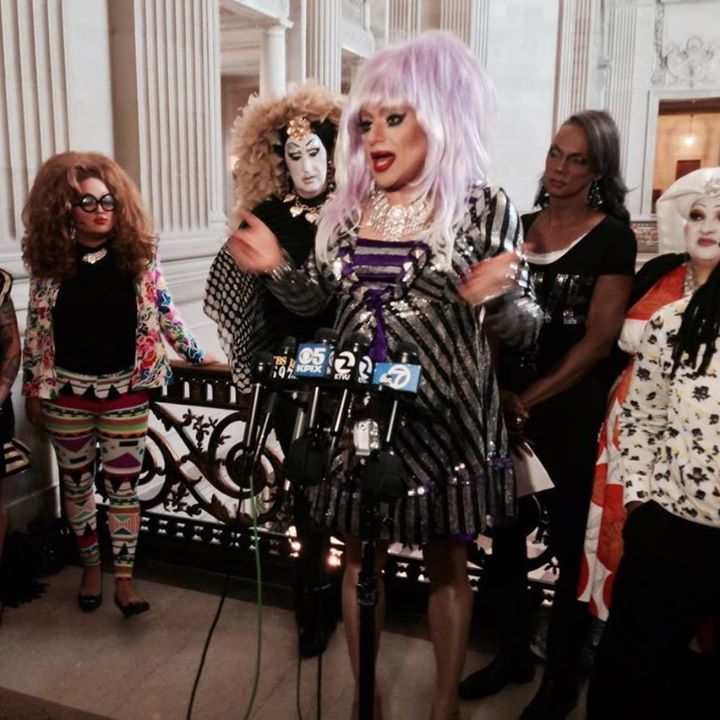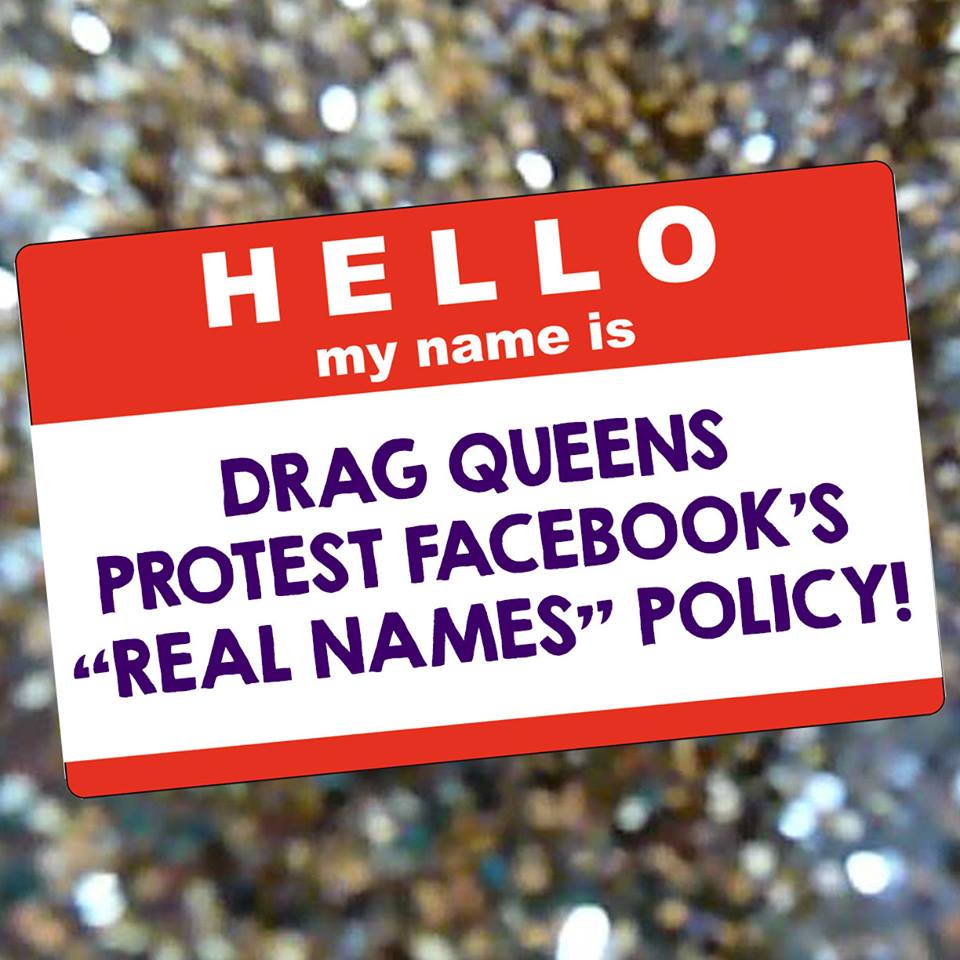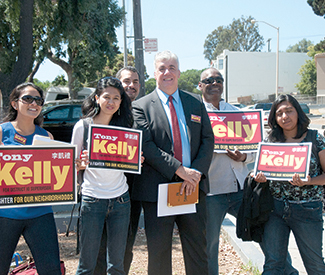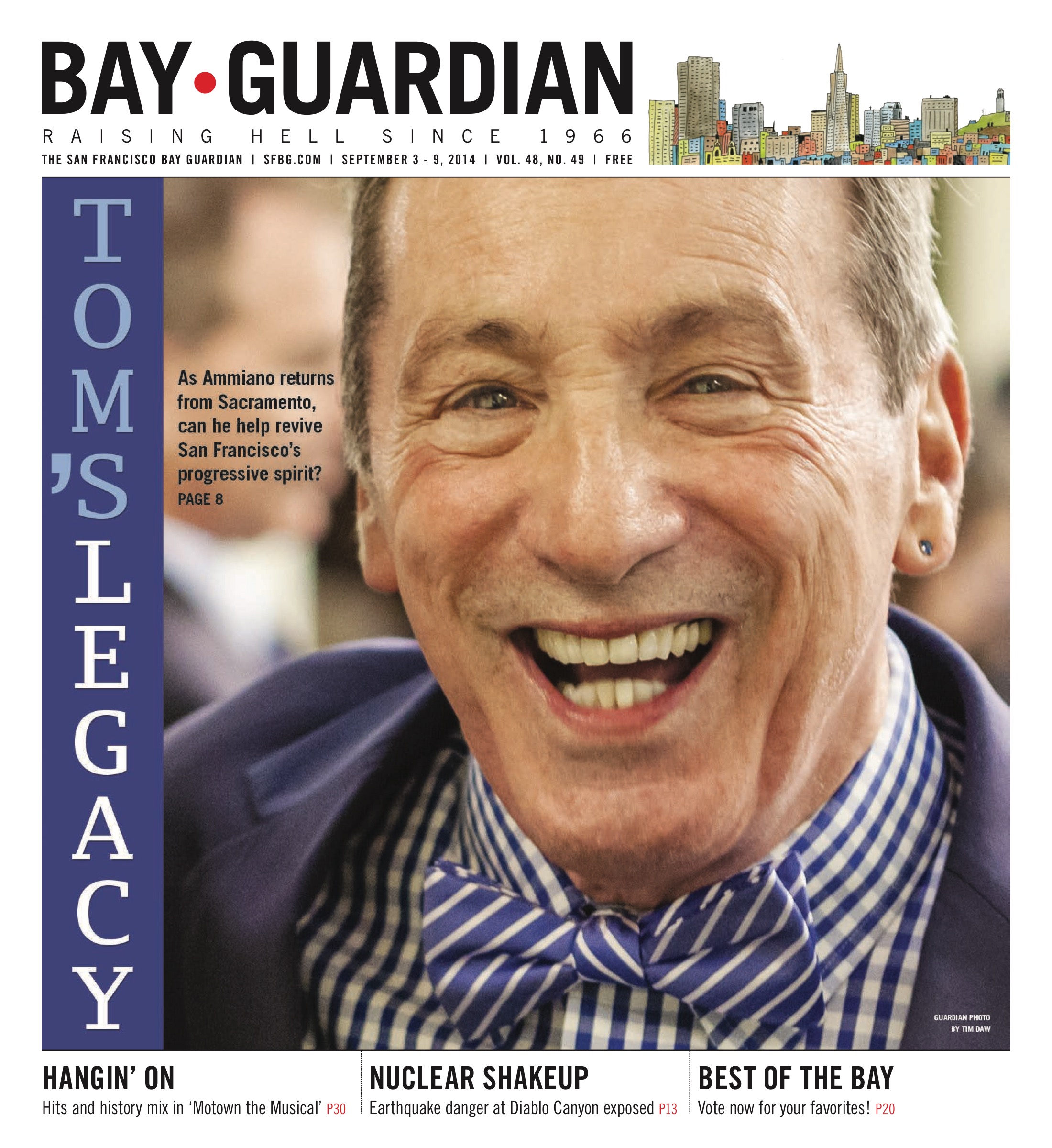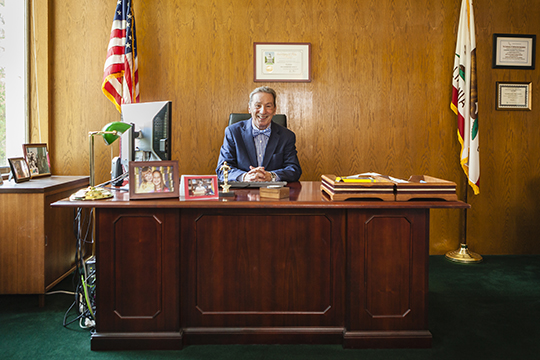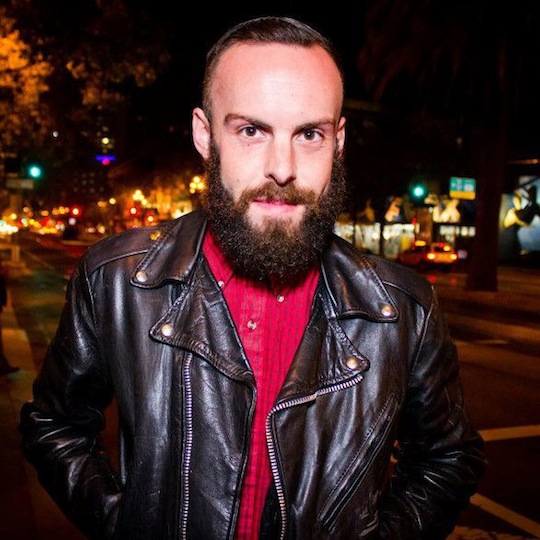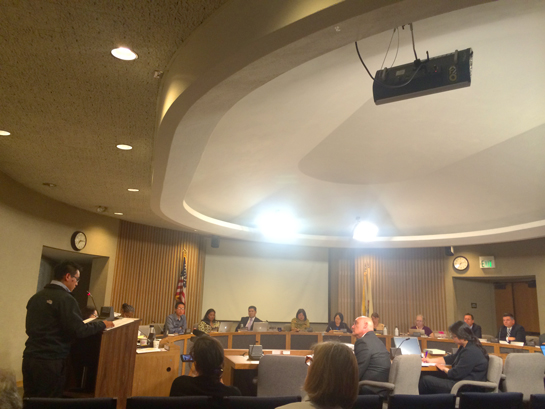steve@sfbg.com
At a moment when San Francisco politics has slid toward the slippery center — when one-time progressives align with business elites, the political rhetoric seems hollow, and the vaunted value of “civility” in City Hall increasingly looks more like a deceptive power grab by the Mayor’s Office — it feels so refreshing to talk with Tom Ammiano.
For one thing, he’s hilarious, always quick with quips that are not only funny, but often funny in insightful ways that distill complex issues down to their essence, delivered with his distinctive nasally honk and lightning timing. Ammiano developed as a stand-up comedian and political leader simultaneously, and the two professional sides feed off each other, alternatively manifesting in disarming mirth or penetrating bite.
But his humor isn’t the main reason why Ammiano — a 72-year-old state legislator, two-time mayoral candidate, and former supervisor and school board member — has become such a beloved figure on the left of state and local politics, or why so many progressives are sad to see him leaving the California Assembly and elected office this year for the first time since 1990.
No, perhaps the biggest reason why public esteem for Ammiano has been strong and rising — particularly among progressives, but also among those of all ideological stripes who decry the closed-door dealmaking that dominates City Hall and the State Capitol these days — is his political integrity and courage. Everyone knows where Tom Ammiano will stand on almost any issue: with the powerless over the powerful.
“Don’t make it about yourself, make it about what you believe in,” Ammiano told us, describing his approach to politics and his advice to up-and-coming politicians.
Ammiano’s positions derive from his progressive political values, which were informed by his working class upbringing, first-hand observations of the limits of American militarism, publicly coming out as a gay teacher at time when that was a risky decision, standing with immigrants and women at important political moments, and steadily enduring well-funded attacks as he created some of San Francisco’s most defining and enduring political reforms, from domestic partner benefits and key political reforms to universal health care.
“He has been able to remain true to his values and principles of the progressive movement while making significant legislative accomplishments happen on a number of fronts,” Sup. David Campos, who replaced Ammiano on the Board of Supervisors and is now his chosen successor in the California Assembly, told the Guardian. “I don’t know that we’ve fully understood the scope of his influence. He has influenced the city more than most San Francisco mayors have.”
So, as we enter the traditional start of fall election season — with its strangely uncontested supervisorial races and only a few significant ballot measures, thanks to insider political manipulations — the Guardian spent some time with Ammiano in San Francisco and in Sacramento, talking about his life and legacy and what can be done to revive the city’s progressive spirit.
LIFE OF THE CAPITOL
Aug. 20 was a pretty typical day in the State Capitol, perhaps a bit more relaxed than usual given that most of the agenda was concurrence votes by the full Senate and Assembly on bills they had already approved once before being amended by the other house.
Still, lobbyists packed the hall outside the Assembly Chambers, hoping to exert some last minute influence before the legislative session ended (most don’t bother with Ammiano, whose name is on a short list, posted in the hall by the Assembly Sergeant-at-Arms, of legislators who don’t accept business cards from lobbyists).
One of the bills up for approval that day was Ammiano’s Assembly Bill 2344, the Modern Family Act, which in many ways signals how far California has come since the mid-’70s, when Ammiano was an openly gay schoolteacher and progressive political activist working with then-Sup. Harvey Milk to defeat the homophobic Briggs Initiative.
The Modern Family Act updates and clarifies the laws governing same-sex married couples and domestic partners who adopt children or use surrogates, standardizing the rights and responsibilities of all parties involved. “With a few simple changes, we can help families thrive without needless legal battles or expensive court actions,” Ammiano said in a press statement publicizing the bill.
Ammiano arrived in his office around 10am, an hour before the session began, carrying a large plaque commending him for his legislative service, given to outgoing legislators during a breakfast program. “Something else I don’t need,” Ammiano said, setting the plaque down on a table in his wood-paneled office. “I wonder if there’s a black market for this shit.”
Before going over the day’s legislative agenda, Ammiano chatted with his Press Secretary Carlos Alcala about an editorial in that morning’s San Francisco Chronicle, “Abuse of disabled-parking program demands legislators act,” which criticized Ammiano for seeking minor changes in a city plan to start charging for disabled placards before he would sponsor legislation to implement it. The editorial even snidely linked Ammiano to disgraced Sen. Leland Yee, who is suspended and has nothing to do with the issue.
“I’ve had these tussles with the Chronicle from day one. They just want people to be angry with me,” Ammiano told us. “You stand up for anything progressive and they treat you like a piñata.”
He thought the criticism was ridiculous — telling Alcala, “If we do a response letter, using the words puerile and immature would be good” — and that it has as much to do with denigrating Ammiano, and thus Campos and other progressives, as the issue at hand.
“Anything that gets people mad at me hurts him,” Ammiano told us.
But it’s awfully hard to be mad at Tom Ammiano. Even those on the opposite side of the political fence from him and who clash with him on the issues or who have been subjected to his caustic barbs grudgingly admit a respect and admiration for Ammiano, even Lt. Gov. Gavin Newsom, who told the Guardian as much when we ran into him on the streets of Sacramento later that day.
Ammiano says he rarely gets rattled by his critics, or even the handful of death threats that he’s received over the years, including the one that led the San Francisco Police Department to place a protective detail on him during the 1999 mayor’s race.
“You are buoyed by what you do, and that compensates for other feelings you have,” Ammiano said of safety concerns.
Finally ready to prepare for the day’s business, he shouts for his aides in the other room (“the New York intercom,” he quips). The first question is whether he’s going to support a bill sponsored by PG&E’s union to increase incentives for geothermal projects in the state, a jobs bill that most environmental groups opposed.
“That is a terrible bill, it’s total shit, and I’m not going to support it,” Ammiano tells his aide. “It’s a scam.”
As Ammiano continued to prepare for the day’s session, we headed down to the Assembly floor to get ready to cover the action, escorted by Alcala. We asked what he planned to do after Ammiano leaves Sacramento, and Alcala told us that he’ll look at working for another legislator, “but there would probably be a lot more compromises.”
SPARKING CHANGE
Compromises are part of politics, but Ammiano has shown that the best legislative deals come without compromising one’s political principles. Indeed, some of his most significant accomplishments have involved sticking to his guns and quietly waiting out his critics.
For all the brassy charm of this big personality — who else could publicly confront then-Gov. Arnold Schwarzenegger at a Democratic Party fundraiser in 2009 and tell him to “kiss my gay ass!” — Ammiano has usually done the work in a way that wasn’t showy or self-centered.
By championing the reinstatement of district supervisorial elections and waging an improbable but electrifying write-in campaign for mayor in 1999 (finishing second before losing to incumbent Willie Brown in the runoff election), Ammiano set the stage for progressives to finally win control of the Board of Supervisors in 2000 and keep it for the next eight years, forming an effective counterbalance to Gavin Newsom’s pro-business mayoralty.
“I just did it through intuition,” Ammiano said of his 1999 mayoral run, when he jumped into the race just two weeks before election day. “There was a lot of electricity.”
After he made the runoff, Brown and his allies worked aggressively to keep power, leaning on potential Ammiano supporters, calling on then-President Bill Clinton to campaign for Brown, and even having Jesse Jackson call Ammiano late one night asking him to drop out.
“That’s when we realized Willie really felt threatened by us,” Ammiano said, a fear that was well-founded given that Ammiano’s loss in the runoff election led directly into a slate of progressives elected to the Board of Supervisors the next year. “It was a pyrrhic victory for him because then the board changed.”
But Ammiano didn’t seize the spotlight in those heady years that followed, which often shone on the younger political upstarts in the progressive movement — particularly Chris Daly, Matt Gonzalez, and Aaron Peskin — who were more willing to aggressively wage rhetorical war against Newsom and his downtown constituents.
By the time the 2003 mayor’s race came, Ammiano’s mayoral campaign became eclipsed by Gonzalez jumping into the race at the last minute, a Green Party candidate whose outsider credentials contrasted sharply with Newsom’s insider inevitability, coming within 5 percentage points of winning.
“I just bounced back and we did a lot of good shit after that,” Ammiano said, noting how district elections were conducive to his approach to politics. “It helped the way I wanted to govern, with the focus on the neighborhoods instead of the boys downtown.”
Perhaps Ammiano’s greatest legislative victory as a supervisor was his Health Care Security Ordinance, which required employers in San Francisco to provide health coverage for their employees and created the Healthy San Francisco program to help deliver affordable care to all San Franciscans.
The business community went ballistic when Ammiano proposed the measure in 2006, waging an aggressive lobbying and legal campaign to thwart the ordinance. But Ammiano just quietly took the heat, refused to compromise, and steadily lined up support from labor, public health officials, and other groups that were key to its passage.
“Maybe the early days of being a pinata inured me,” Ammiano said of his ability to withstand the onslaught from the business community for so long, recalling that in his 1999 school board race, “I really became a pinata. I got it in the morning from the Chronicle and in the afternoon from the Examiner.”
Ammiano kept Newsom apprised of his intentions and resolve, resisting entreaties to water down the legislation. “I kept talking to him and I told him I was going to do it,” Ammiano said. “Eventually, we got a 11 to zip vote and Newsom couldn’t do anything about it. That was a great journey.”
In the end, Newsom not only supported the measure, but he tried to claim Ammiano’s victory as his own, citing the vague promise he had made in his 2007 State of the City speech to try to provide universal health care in the city and his willingness to fund the program in his 2007-08 budget.
But Ammiano was happy with the policy victory and didn’t quibble publicly with Newsom about credit. “I picked my battles,” Ammiano said, contrasting his approach to Newsom with that of his more fiery progressive colleagues. “I tried to go after him on policy, not personality.”
Ammiano isn’t happy with the political turn that San Francisco has taken since he headed to Sacramento, with the pro-business, fiscally conservative faction of the city controlling the Mayor’s Office and exerting a big influence on the Board of Supervisors. But San Francisco’s elder statesman takes the long view. “Today, the board has a moderate trajectory that can be annoying, but I think it’s temporary,” Ammiano said. “These things are cyclical.”
He acknowledges that things can seem to a little bleak to progressives right now: “They’re feeling somewhat marginalized, but I don’t think it’s going to stay that way.”
FLOOR SHOW
Back on the Assembly floor, Ammiano was working the room, hamming it up with legislative colleagues and being the first of many legislators to rub elbows and get photos taken with visiting celebrities Carl Weathers, Daniel Stern, and Ron Perlman, who were there to support film-credit legislation
“Ron Perlman, wow, Sons of Anarchy,” Ammiano told us afterward, relating his conversation with Perlman. “I said, ‘They killed you, but you live on Netflix.’ I told him I was big fan. Even the progressives come here for the tax breaks.”
When Little Hoover Commission Chair Pedro Nava, who used to represent Santa Barbara in the Assembly, stopped to pose with Ammiano for the Guardian’s photographer, the famously liberal Ammiano quipped, “You’ll get him in trouble in Santa Barbara. Drill, baby, drill!”
Ammiano chairs the Assembly Public Safety Committee, where he has successfully pushed prison reform legislation and helped derail the worst tough-on-crime bills pushed by conservatives. “We have a lot of fun, and we get a chance to talk about all these bills that come before us,” Bob Wieckowski (D-Fremont), who chairs the Judiciary Committee, told the Guardian when asked about Ammiano. “You can see how these bad bills get less bad.”
Ammiano gave a short speech when his Modern Family Act came up for a vote, noting that it “simplifies the law around these procedures,” before the Assembly voted 57-2 to send it to the governor’s desk, where he has until Sept. 30 to act on it. “I think he’ll sign it,” Ammiano told the Guardian, “even though it’s about reproduction and naughty bits.”
“He’s a hoot,” Assemblymember Reggie Jones-Sawyer (D-Los Angeles) said of Ammiano, whose desk is right behind his own. Jones-Sawyer said that he’d love to see Ammiano run for mayor of San Francisco, “but he’s waiting for a groundswell of support. Hopefully the progressives come together.”
Jones-Sawyer said Ammiano plays an important role as the conscience of a Legislature that too often caters to established interests.
“There’s liberal, progressive, socialist, communist, and then there’s Tom,” Jones said. “As far left as you can go, there’s Tom, and that’s what we’re going to miss.”
Yet despite that strong progressive reputation, Ammiano has also been an amazingly effective legislator (something that might surprise those supporting the campaign of David Chiu, which has repeatedly claimed that ideological progressives like Ammiano and Campos can’t “get things done” in Sacramento).
Last year, Ammiano got 13 bills through the Legislature — including three hugely controversial ones: the TRUST Act, which curbs local cooperation with federal immigration holds; the Domestic Workers Bill of Rights; and a bill protecting transgender student rights in schools, which was savaged by conservative religious groups — all of which were signed into law by Gov. Jerry Brown.
“A lot of it is personal relationships, some is timing, and some is just sticking to it,” Ammiano said of effectiveness.
Some of his legislative accomplishments have required multiyear efforts, such as the Domestic Workers Bill of Rights, which was vetoed in 2012 before being signed into law last year with only a few significant changes (see “Do we care?” 3/26/13).
“Tom Ammiano was so incredible to work with,” Katie Joaquin, campaign coordinator for the California Domestic Workers Coalition, for whom the bill had long been a top priority, told the Guardian.
The large grassroots coalition backing the bill insisted on being a part of the decision-making as it evolved, which is not always easy to do in the fast-paced Capitol. But Joaquin said Ammiano’s history of working with grassroots activists made him the perfect fit for the consensus-based coalition.
“That’s difficult to do in the legislative process, and working with Tom and his office made that possible,” Joaquin told us. “He wanted to make sure we had active participation in the field from a variety of people who were affected by this.”
When the bill was vetoed by Gov. Brown, who cited paternalistic concerns that better pay and working conditions could translate into fewer jobs for immigrant women who serve as domestic workers, Joaquin said Ammiano was as disappointed as the activists, but he didn’t give up.
“It was really hard. I genuinely felt Tom’s frustration. He was going through the same emotions we were, and it was great that he wanted to go through that with us again,” Joaquin told us. “Sometimes, your allies can get fatigued with the long struggles, but Tom maintained his resolve and kept us going.”
And after it was over, Ammiano even organized the victory party for the coalition and celebrated the key role that activists and their organizing played in making California only the second state in the nation (after New York) to extend basic wage, hour, and working condition protections to nannies, maids, and other domestic workers excluded under federal law.
“He has a great sense of style,” Joaquin said of Ammiano, “and that emanates in how he carries himself.”
COMING OUT
Ammiano came to San Francisco in 1964, obtaining a master’s degree in special education from San Francisco State University and then going on to teach at Hawthorne Elementary (now known as Cesar Chavez Elementary). He quickly gained an appreciation for the complex array of issues facing the city, which would inform the evolution of his progressive worldview.
“In teaching itself, there were a lot of social justice issues,” Ammiano said. For example, most native Spanish-speakers at the time were simply dumped into special education classes because there wasn’t yet bilingual education in San Francisco schools. “So I turned to the community for help.”
The relationships that he developed in the immigrant community would later help as he worked on declaring San Francisco a sanctuary city as waves of Central American immigrants fled to California to escape US-sponsored proxy wars.
Growing up a Catholic working class kid in New Jersey, Ammiano was no hippie. But he was struck by the brewing war in Vietnam strongly enough that he volunteered to teach there through a Quaker program, International Volunteer Service, working in Saigon from 1966-68 and coming back with a strong aversion to US militarism.
“I came back from Vietnam a whole new person,” he told us. “I had a lot of political awakenings.”
He then worked with veterans injured during the war and began to gravitate toward leftist political groups in San Francisco, but he found that many still weren’t comfortable with his open homosexuality, an identity that he never sought to cover up or apologize for.
“I knew I was gay in utero,” Ammiano said. “I said you have to be comfortable with me being a gay, and it wasn’t easy for some. The left wasn’t that accepting.”
But that began to change in the early ’70s as labor and progressives started to find common cause with the LGBT community, mostly through organizations such as Bay Area Gay Liberation and the Gay Teachers Coalition, a group that Ammiano formed with Hank Wilson and Ron Lanza after Ammiano publicly came out as a gay teacher in 1975.
“He was the first public school teacher to acknowledge that he was a gay man, which was not as easy as it sounds in those days,” former Mayor Art Agnos told us, crediting Ammiano with helping make support for gay rights the default political position that it became in San Francisco.
San Francisco Unified School District still wasn’t supportive of gay teachers, Ammiano said, “So I ran for school board right after the assassinations [of Mayor George Moscone and Sup. Harvey Milk in 1978] and got my ass kicked.”
Shortly thereafter, Ammiano decided to get into stand-up comedy, encouraged by friends and allies who loved his sense of humor. Meanwhile, Ammiano was pushing for SFUSD to name a school after Milk, as it immediately did for Moscone, a quest that dragged on for seven years and which was a central plank in his unsuccessful 1988 run for the school board.
But Ammiano was developing as a public figure, buoyed by his stand-up performances (which he said Chronicle reporters would sometimes attend to gather off-color quotes to use against him in elections) and increased support from the maturing progressive and queer communities.
So when he ran again for school board in 1990, he finished in first place as part of the so-called “lavender sweep,” with LGBT candidates elected to judgeships and lesbians Carole Migden and Roberta Achtenberg elected to the Board of Supervisors.
On the school board, Ammiano helped bring SFUSD into the modern age, including spearheading programs dealing with AIDS education, support for gay students, distribution of condoms in the schools, and limiting recruiting in schools by the homophobic Boy Scouts of America.
“I found out we were paying them to recruit in the schools, but I can’t recruit?” Ammiano said, referencing the oft-raised concern at the time that gay teachers would recruit impressionable young people into homosexuality.
As his first term on the school board ended, a growing community of supporters urged Ammiano to run for the Board of Supervisors, then still a citywide election, and he was elected despite dealing with a devastating personal loss at the time.
“My partner died five days before the election,” Ammiano said as we talked at the bar in Soluna, tearing up at the memory and raising a toast with his gin-and-tonic to his late partner, Tim Curbo, who succumbed to a long struggle with AIDS.
Ammiano poured himself into his work as a supervisor, allied on the left at various points in the mid-late ’90s with Sups. Sue Bierman, Terrence Hallinan, Leland Yee, Mabel Teng, Angelo Alioto, and Carole Migden against the wily and all-powerful then-Mayor Brown, who Ammiano said “manipulated everything.”
But Ammiano gradually began to chip away at that power, often by turning directly to the people and using ballot measures to accomplish reforms such as laws regulating political consultants and campaign contributions and the reinstatement of district supervisorial elections, which decentralized power in the city.
“People frequently say about politicians, when they want to say something favorable, that they never forgot where they came from,” Agnos told us. “With Tom, he never forgot where he came from, and more importantly, he never forgot who he was…He was an authentic and a proud gay man, as proud as Harvey Milk ever was.”
And from that strong foundation of knowing himself, where he came from, and what he believed, Ammiano maintained the courage to stand on his convictions.
“It’s not just political integrity, it’s a reflection of the man himself,” Agnos said, praising Ammiano’s ability to always remain true to himself and let his politics flow from that. “A lot of politicians don’t have the courage, personal or political, to do that.”
WHAT’S NEXT
Ammiano’s legacy has been clearly established, even if it’s not always appreciated in a city enamored of the shiny and new, from recent arrivals who seem incurious about the city’s political history to the wave of neoliberal politicians who now hold sway in City Hall.
“Tom has carried on the legacy of Harvey Milk of being the movement progressive standard bearer. He has, more than anyone else, moved forward progressive politics in San Francisco in a way that goes beyond him as an individual,” Campos said, citing the return of district elections and his mentoring of young activists as examples. “He brought a number of people into politics that have been impactful in their own right.”
Campos is one of those individuals, endorsed by Ammiano to fill his District 9 seat on the Board of Supervisors from among a competitive field of established progressive candidates. Ammiano says he made the right choice.
“I have been supportive of him as a legislator and I think he’s doing the right things,” Ammiano said of Campos, adding an appreciation for the facts that he’s gay, an immigrant, and a solid progressive. “He’s a three-fer.”
Ammiano said that Campos has been a standout on the Board of Supervisors in recent years, diligently working to protect workers, tenants, and immigrants with successful efforts to increase tenant relocation fees after an eviction and an attempt to close the loophole that allows restaurants to pocket money they’re required to spend on employee health care, which was sabotaged by Chiu and Mayor Lee.
“I like his work ethic. He comes across as mild-mannered, but he’s a tiger,” Ammiano said of Campos. “If you like me, vote for David.”
But what about Ammiano’s own political future?
Ammiano said he’s been too busy lately to really think about what’s next for him (except romantically: Ammiano recently announced his wedding engagement to Carolis Deal, a longtime friend and lover). Ammiano is talking with universities and speakers bureaus about future gigs and he’s thinking about writing a book or doing a one-man show.
“Once I get that settled, I’ll look at the mayor’s race and [Sen. Mark] Leno’s seat,” Ammiano said, holding out hope that his political career will continue.
Ammiano said the city is desperately in need of some strong political leadership right now, something that he isn’t seeing from Mayor Lee, who has mostly been carrying out the agenda of the business leaders, developers, and power brokers who engineered his mayoral appointment in 2011.
“Basically, he’s an administrator and I don’t think he’ll ever be anything but that,” Ammiano said. “We are so fucking ready for a progressive mayor.”
If Ammiano were to become mayor — which seems like a longshot at this point — he says that he would use that position to decentralize power in San Francisco, letting the people and their representatives on the Board of Supervisors have a greater say in the direction of the city and making governance decisions more transparent.
“I don’t believe in a strong mayor [form of government],” Ammiano said. “If I was mayor, all the commission appointments would be shared.”
But before he would decide to run for mayor, Ammiano says that he would need to see a strong groundswell of public support for the values and ideals that he’s represented over nearly a half-century of public life in San Francisco.
“I don’t want to run to be a challenger,” Ammiano said. “I’d want to run to be mayor.”













